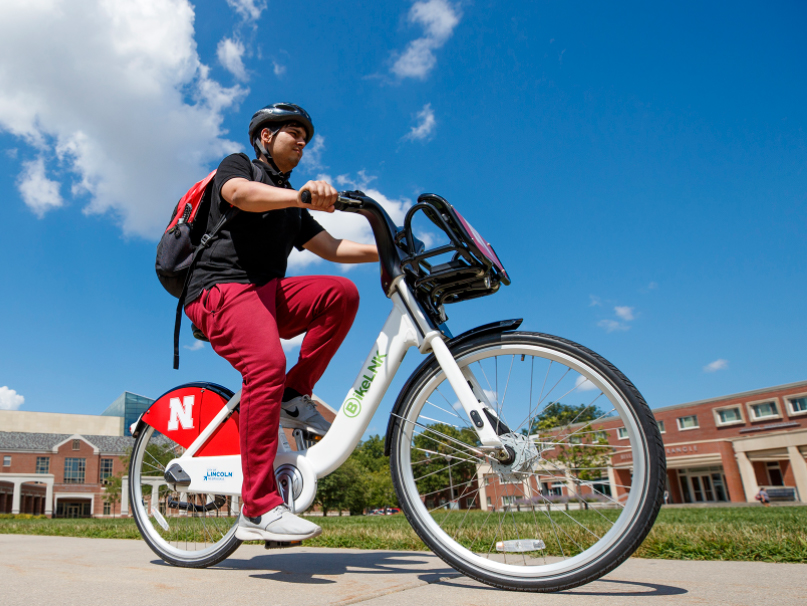Tuesday, August 23, 2022 Biking on campus: Three choices for two-wheel travel

Whether you're looking to save walking time, lower your carbon footprint or simply get some exercise, biking offers an easy alternative way to get around campus and Lincoln. Consider these three options.
- Ride your own bike.
Bringing your personal bike to campus is one popular choice with students. UNL provides hundreds of bike rack spaces, so you're sure to find somewhere to store your bike near academic buildings, rec spaces, the libraries, and living units.
Extreme temperatures and rough weather can be hard on bicycles, so it's smart to take some extra steps to protect your bike's body and wheels. You can get tune-ups and repairs at the on-campus Bike Shop, inside the Outdoor Adventure Center.
Also be sure to register your bike with the UNL Police for an ID in case it is stolen and recovered.
- Enjoy short-term trips with BikeLNK.
If you don't have your own bike to get around, another affordable option is to use BikeLNK. The city's bike-share system has numerous station locations around central Lincoln, including three stations on city campus and two on east campus.
UNL students are eligible for a $25 Aluminum Access membership, which includes unlimited 1-hour trips for 365 days. Use the promo code UNLBIKES2223 and their unl.edu email address when you sign up.
You can also download the BCycle app to rent bikes via your phone.
- Rent a bike from the Outdoor Adventures Center.
The Bike Shop at the Outdoor Adventure Center offers multiple rental options. You can rent a single-speed, mountain or touring bike for as many days as you need and each rental includes a helmet and bike lock. Bike transport/storage racks for your vehicle are available too, for an additional fee.